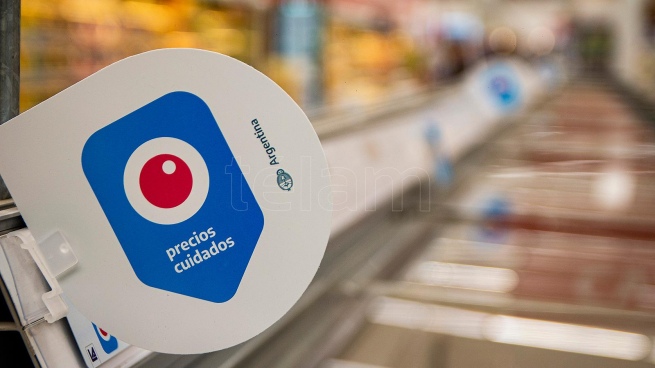The Secretary of Commerce, Matías Tombolini, will begin next week to hold meetings with the main actors in the price formation chain, in view of a relaunch of the Care Prices program within the next 45 to 60 days.
“We are going to start meeting next week with the different business associations, supermarkets, local mouths, users and consumers and, obviously, the main actors in the price formation chain,” Tombolini said in radio statements.
One of the objectives of the meetings, according to the new secretary, will be “return to prices as a unit of useful information when deciding”since “today Argentina is going through a moment where Prices are no longer a daily reference”.
“When we took office, what we did, from the initial kick that (the Minister of Economy) Sergio (Massa) gave to management, is to mark a clear roadmap, establish a diagnosis, a set of objectives and from there a road to travel, a plan, a program,” he said after taking office.
From there, it will search value Prices Care, pretending that “it will work much better within 45 to 60 days” from its relaunch.
“What we have to try is find agreements that are stable over timefor at least a quarter,” said Tombolini, warning that “where there is an abuse, we are going to try to detect it and work accordingly”.
In this sense, the secretary reiterated that the program will seek return to the fundamentals that his predecessor, Augusto Costa, gave him between 2014 and 2015, with “the idea that prices work as reference prices and not as a freeze”.
The former director of Banco Nación and Arsat valued the tools that his portfolio will now have following the decision of the Minister of the Economy, Sergio Massa, to add foreign trade functions to Domestic Trade that, previously, corresponded to the Secretary of Industry.
This will allow the new Secretary of Commerce to have a centralized control of the Comprehensive Import Monitoring System (SIMI).
“The Secretariat, by incorporating functions related to foreign trade, recovers a tool that it had above all in the Government of Cristina (Fernández de Kirchner) that Sergio (Massa) intends to resume,” he specified.
On the other hand, Tombolini said that it is necessary to “try to slow down this dynamic that in July and also in August is hot in terms of prices, it seems to me that it is the first point, and recover this idea of the referentiality of prices”he explained.
“It doesn’t mean,” he added, “that prices go back but increase more slowlyand this is achieved with a set of tools proposed by Sergio (Massa), which have to do with the fiscal front, with the accumulation of reserves and with an ordered program which in turn has different measures for compliance with the axes,” he said.
The Care Price basket was renewed on July 7 and includes products from the items warehouse, cleaning, perfumery, care and personal hygiene; articles for babies, fresh products (cold cuts, fresh pasta, empanadas and tarts), frozen and beverages; along with a basket of fruits and vegetables.
Meanwhile, at the end of July, the Government reached an agreement with dairy producers and supermarkets for the incorporation of 120 products of this category to the Care Prices program.
In addition, the companies and the main chains committed themselves to triple the volume of fresh milk and guarantee supply.
In this way, the total amount contemplated the basket amounts to around 1,070 products.
For this stage that runs until October 7 next, an average quarterly increase guideline of 9.3% was agreed with the different chambers, which will be divided as follows: 3.3% in July; 3.2% in August and 2.5% in September in the case of warehouse products.
As for dairy products, it will be 4.9% in July; 3.3% in August and 2.8% in September, with which the average total will be 9.1% for the quarter.










